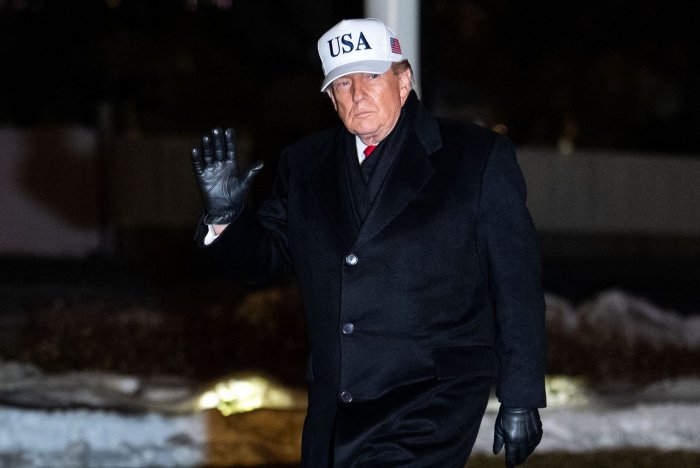Appeals court rules DHS Secretary Kristi Noem unlawfully ended TPS for Venezuela, Haiti
Jan. 29 (UPI) — An appeals court ruled that Homeland Security Secretary Kristi Noem unlawfully ended immigration protections for Haiti and Venezuela.
The three judges of the 9th U.S. Circuit Court of Appeals ruled against Noem, who ended the Temporary Protected Status for Venezuelans on Jan. 29, 2025. She ended TPS protection for Haitians on June 28.
The opinion, written late Wednesday by Judge Kim McLane Wardlaw, said Noem’s “unlawful actions have had real and significant consequences for the hundreds of thousands of Venezuelans and Haitians in the United States who rely on TPS.”
She said the move has hurt immigrants who came here to work.
“The record is replete with examples of hard-working, contributing members of society — who are mothers, fathers, wives, husbands, and partners of U.S. citizens, pay taxes, and have no criminal records — who have been deported or detained after losing their TPS,” Wardlaw wrote.
“The Secretary’s actions have left hundreds of thousands of people in a constant state of fear that they will be deported, detained, separated from their families, and returned to a country in which they were subjected to violence or any other number of harms,” she said.
The concurring opinion by Judge Salvador Mendoza Jr. noted that Noem and President Donald Trump had made racist remarks about the people of Venezuela and Haiti, meaning that the decision to end TPS was “preordained” and not based on need.
“The record is replete with public statements by Secretary Noem and President Donald Trump that evince a hostility toward, and desire to rid the country of, TPS holders who are Venezuelan and Haitian,” Mendoza wrote. “And these were not generalized statements about immigration policy toward Venezuela and Haiti or national security concerns to which the Executive is owed deference. Instead, these statements were overtly founded on racist stereotyping based on country of origin.”
The concurring opinion cites Noem calling Venezuelans “dirtbags” and “criminals,” and Trump saying that immigrants are “poisoning the blood” of Americans.
The ruling, though, won’t change the TPS removal for Venezuelans. The Supreme Court ruled in another case in October to allow Noem to end the TPS while the court battles continue.
TPS began as part of the Immigration Act of 1990. It allows the Department of Homeland Security secretary to grant legal status to those fleeing fighting, environmental disaster or “extraordinary and temporary conditions” that prevent a safe return. TPS can last six, 12 or 18 months, and if conditions stay dangerous, they can be extended. It allows TPS holders to work, but there is no path to citizenship.
Haiti was given TPS in 2010 after a magnitude 7 earthquake that killed about 160,000 people. It left more than 1 million without homes.

